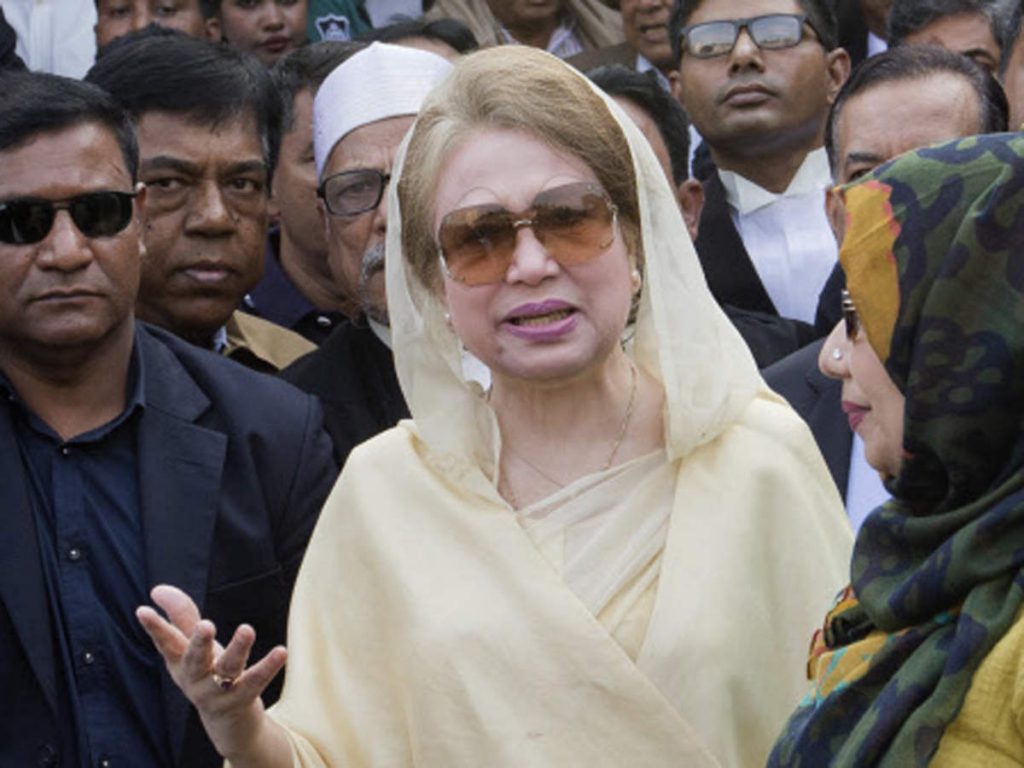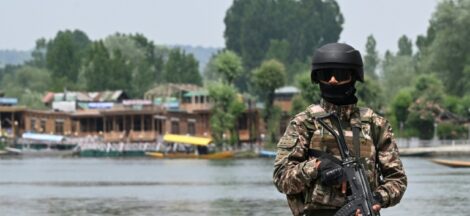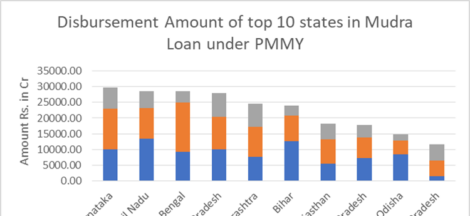By Ashis Biswas
In Bangladesh, a new third force has emerged on the political scene, even as the ruling Awami League (AL) and the chief Opposition outfit Bangladesh Nationalist Party (BNP) bitterly debate pre-election administrative arrangements. Seven parties and groups have recently launched a new formation called the Ganatantra Mancha (GM), meaning ‘Democracy Forum.’
Such pre-election initiatives have been seen before in Bangladesh, by smaller parties and various lobbies trying to unite in a bid to change, if possible, the dominant binary nature of politics. Normally the main battle for power is between the AL and the BNP. Occasionally local outfits led by influential leaders win a few seats.
Post-election, however, most such groups end up supporting one or the other bigger parties, in power or opposition. In 2018 for instance, the Jukta Front (United Front) was the third formation in the fray. However, as the AL won, JF candidates mostly joined the AL, while a few went over to the BNP.
This time, GM activists are trying hard to establish their footprint. They have organised some protest rallies over various issues. GM spokesmen, in alignment with the BNP and other opposition parties, have demanded that the 2023 Parliamentary elections be held under a neutral caretaker government, under international observation. They oppose the ‘anti-people policies of the ruling AL Government’ and have called for its resignation. In common with civil rights groups and critics of the Government, they hold the ruling party responsible for the steady erosion of democratic norms in Bangladesh politics, rising corruption, nepotism and the ruthless suppression of opposition activities, through the misuse of police and other agencies.
By way of political response, there have been mixed reactions in Bangladesh about the emergence of the GM, according to Dhaka-based media accounts, So far the general response has been much as expected.
The BNP and opposition parties have welcomed the new formation. Senior BNP leader Mr Nazrulislam Khan expressing his satisfaction over the demands raised by the GM, said they were quite in line with the general opposition stand on most issues. The major demand was the conduct of the scheduled elections. There was no hope of fair elections if they were held during the tenure of the Awami League. There must be a new neutral caretaker administration in charge, guided by the Election Commission, to conduct and oversee the general elections, in the presence of international observers.
He looked forward to having preliminary talks with GM leaders, to discuss the possibility of starting joint protest movements against the AL-led administration.
It has been a consistent stand of the BNP and allied parties that the last 2018 elections were heavily rigged by armed Awami league activists, helped by the police and the administration. The AL had won a stunning 287 out of 298 seats (total seats 300). Again, earlier in 2014 polls 153 opposition candidates boycotted the polls, accusing the AL of manipulating results. Such developments and the resultant controversies had hurt the image of the Al in many international fora and generally lowered the country’s prestige and its claims as a functioning democracy.
Naturally the ruling Awami League strongly contests the allegations of rigging and vote manipulation. Prominent leaders from Prime Minister Sheikh Hasina downwards repeatedly emphasize that the opposition parties have been increasingly isolated from the people and out of touch with present realities. But reports on the manner and methods of polling during the elections filed by international observers and correspondents have not usually provided a positive endorsement for the AL’s defensive narrative.
As the decks are being cleared for the 2023 polls, the AL insists that most allegations were exaggerated and motivated and the 2018 polls were by and large fair. The desperate opposition, fearing its eventual defeat, had launched a carefully orchestrated smear campaign long before the polls were held. And it has been no different in 2022 so far either.
Naturally, the launch of a third force has not been welcomed by the ruling AL. Senior leader and Information Minister Mr. Hasan Mahmood is confident that the GM’s campaign and hobnobbing with the main opposition BNP will not cut much ice among common voters, who have benefited from the strong economic performance of the Al Government during the past decade. Even in these hard times, the economic situation in Bangladesh has been seen as a largely positive by international authorities. He did not think to so-called third force would make much of an impact among voters.
For the record, the composition of the GM is interesting in that observers see in it an omnibus coalition of Leftist, liberal, centrist and even a few conservative, politicians and groups. Some leaders have been known for their activities in the past, when they belonged to other parties. But for the 2023 polls, they have decided to come together and fight for the restoration of democracy, to root out rising corruption and bring about a fairer administration, in Bangladesh.
The seven major groups that have come together to form the GM are, Nagarik Oikya, the Biplabi Workers party, the Gana Adhikar Parishad, the Bhashani Anusari Parishad, the Rashtra Sanskar Andolan the Gana Sanhati Andolan and the Jatiya Samajtantrik Dal. (IPA Service)




 Kharge wins; Rahul says his role will be decided by new chief
Kharge wins; Rahul says his role will be decided by new chief 